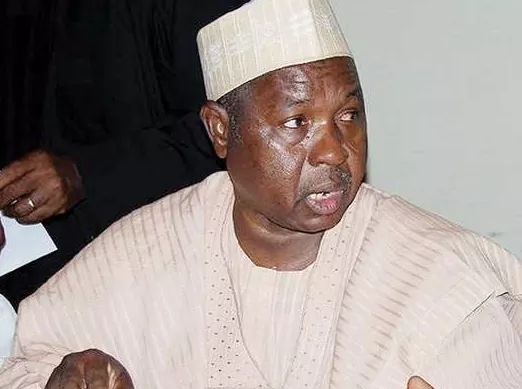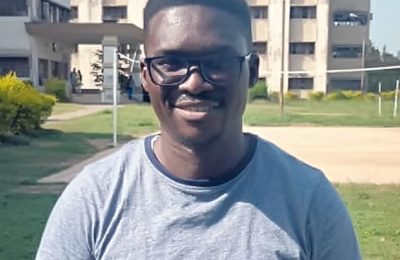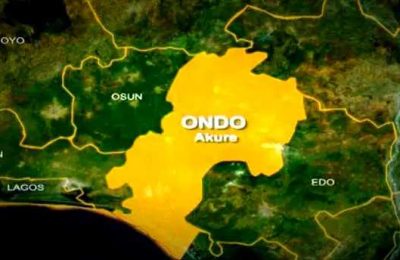
Nationnewslead reports that Following the release of 344 abducted students of Government Secondary School, Kankara, Special Adviser to Governor Aminu Masari on Security, Ibrahim Katsina, in this interview, narrates the inside story of the negotiation leading to their freedom.

We learnt you were one of those at the forefront of the negotiations for the release of abducted school children. How did it go?
In situations like this, what you need to understand is the psychology of crime. What are the factors responsible? What motivates the movement? How vulnerable do they see the community? From there, you now go back to your record and see who may likely be among those who perpetrated the act. We realised that we have community-based problems. So it will be easy for us to identify who the collaborators and other actors are. And through that process, we were able to make inroads and establish contacts to understand the factors responsible.

Who were these contacts you established?
In situations like this, you don’t divulge your contacts because when you do that, when next you need their assistance, they won’t come up. There is a need to be principled. You don’t disclose who your contacts are.
Who were the facilitators of the process?
As the governor has said, it was a painstaking process. We tried to see the people we trusted and reached out to them. And through that process, we were able to communicate, and based on what they told us, we realised it was a local conflict.
We, therefore, involved local conflict resolution mechanism. And through that, we were able to build confidence around them. We made them realise crime doesn’t pay. And there is no need to continue in that direction.
People living in that area are the same. Why should they go to such a level? What have the innocent people done to them? We made them realise that an average Fulani man is a responsible person and why should they allow themselves to be labeled as criminals? That was the crux. We were able to win their confidence and made them realise it was good for them to listen to us.
Who are these people, are they bandits or Boko Haram?
They are local bandits from the upper communities.
What were the conditions or terms of the release?
No, there was no swap and no payment of ransom. What we did as I told you was to address local conflict dynamics existing in the community. We used conflict resolution mechanisms.
Most of the problems facing the north are local conflicts that metamorphosed into banditry. Now that we have understood that, we are working with people of knowledge, research institutions, and security experts to develop local conflict resolution mechanisms. When the bandits realised that we are genuinely interested in addressing their concerns, they accepted our demands without any condition.
Why did government decide to negotiate instead of resorting to the use of military force?
As I told you, it is a local conflict. When you have a local conflict, don’t resort to force unless negotiation fails. In any protracted conflict, you have to go to the round table. It was not that security forces are not ready to fight. We had to evolve conflict resolution mechanism through local contacts. And you can see it has paid off. We have saved our resources, both human and material and in the long run, we are turning them around from criminals to responsible citizens.
That is our long term goal. Instead of treating them as criminals, we want to evolve a mechanism through perception management that will make them realise criminality doesn’t pay. You know we have explored various avenues.
And people have realised that it is not every time that we should continue to fight each other or kill each other. We have to resolve our conflicts. The North was not like this before. And since we have realised we are fighting ourselves, let us evolve mechanisms to help address our problems without necessarily using force. That is why we used that option.
What happens to the perpetrators of the act, does it mean they have been forgiven?
It depends on what government decides to do. As far as we are concerned, our mandate is to secure the release of the students. And we have done that through our expertise. It is left for agencies to decide what next. Mine is to evolve a mechanism that will assist in solving the conflict. The aim is to ensure it does not lead to this kind of situation in future.
Katsina had a peace deal that failed. Are we seeing a revisit of the deal?
We are not revisiting any peace deal. Even the peace deal that failed was because it was not based on the variables we are talking about now. We have to be more conflict resolution minded. We are addressing the issue properly.
After every projected conflict, you have to use dialogue in solving the problem. Since this method has assisted us in finding a solution to the problem, we are trying to see what we can do to make it a case study. It can become a template for others to emulate. Now that government is emphasising community policing, we should embrace conflict resolution mechanisms.
Lastly, what are the lessons learnt from the incident?
The lesson learnt is to try to solve our problems without letting them escalate.
We should resolve conflicts before they degenerate to the point we are now. Conflict does not pay. We need peace to develop. We have to work out strategies.
This is the first attack on a school in the state. What measure is government putting in place to avert future reoccurrences?
We are evolving conflict resolution mechanisms. We have to put our heads together and find a common ground that would bring lasting peace to our state.
To Advertise or Publish a Story on Nationnewslead: Kindly contact us @ Nationnewslead@gmail.com Call or Whatsapp: 08168544205, 07055577376







